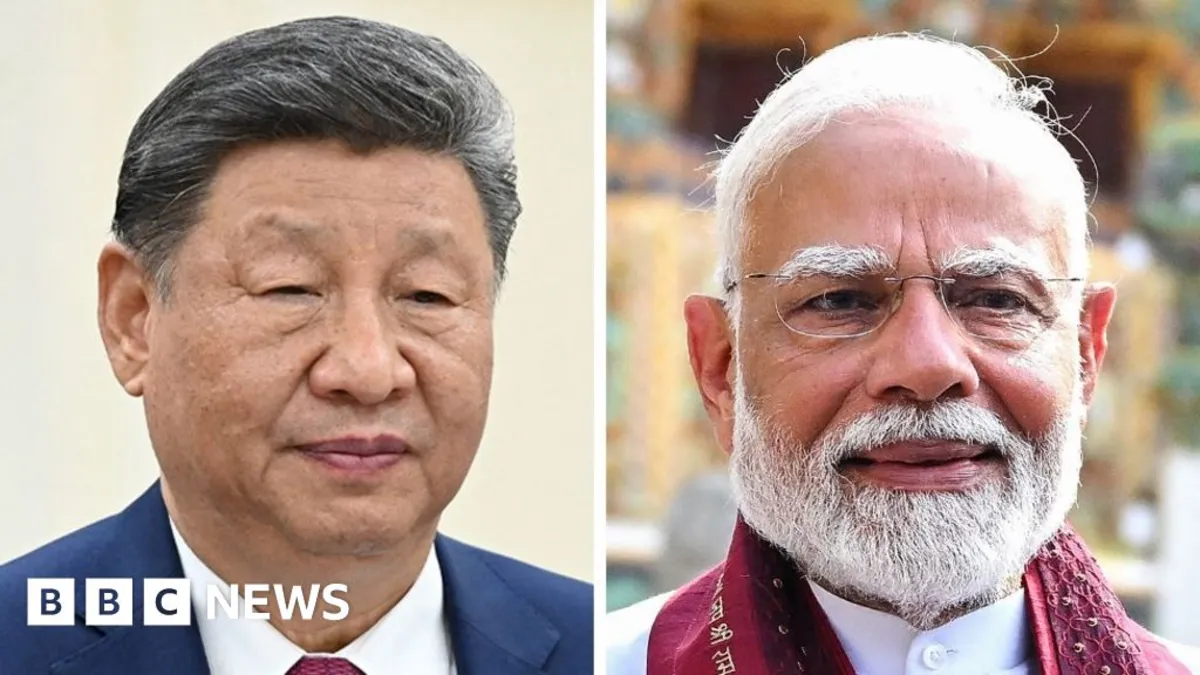
As Canadians head to the polls to select their next government, the stakes have never been higher. This election comes at a crucial time in Canada's relations with the United States, particularly in light of the economic challenges posed by Trump tariffs on Canadian exports. These tariffs have intensified concerns about national security as the US president’s ambitions to integrate Canada into an expanded US framework continue to loom over the political landscape. Yet, this election is not just a matter of US-Canada relations; it is capturing the attention of nations across the globe.
With the ongoing rivalry between the United States and China, Canada has traditionally aligned itself with Washington. However, this election presents a potential shift, as China aims to reset its relations with Canada amid Donald Trump's trade war. The Chinese ambassador in Ottawa has publicly stated that Beijing is ready to form a partnership with Canada to combat what it perceives as American bullying, suggesting that “China is Canada's opportunity, not Canada’s threat,” as stated by Wang Di to The Canadian Press.
Despite this overture, Canadian leaders seem hesitant. Prime Minister and Liberal leader Mark Carney has labeled Beijing the "biggest security threat" to Canada, while Conservative leader Pierre Poilievre has denounced China as an autocracy undermining the global order. This tough rhetoric may be influenced by the memory of China's imprisonment of two Canadians in 2018, which occurred in the wake of the Huawei executive’s arrest, illustrating the delicate balance Canada must navigate in its foreign relations.
Historically, Canada was often dismissed in Britain as a "boring country" populated by "polite people." However, the upcoming Canadian election is now being framed as a significant moment on the global stage, with the Economist dubbing it the “Maple Leaf v MAGA” election. The outcome is being closely monitored as British politicians seek lessons from Canada's shifting political climate. Following a period of trailing in the polls, Carney's Liberal Party now leads against Poilievre's Conservatives, who have adopted a strategy reminiscent of the culture wars seen in the US and the UK.
Carney’s assertive stance against US tariffs has resonated with voters, contrasting sharply with UK Labour leader Keir Starmer's more conciliatory approach. However, Carney has also acknowledged that Canada cannot engage in a tit-for-tat trade war, stating, “We don’t have to do a deal in the short term.” This perspective aligns with Britain’s cautious approach to trade agreements.
In addition to its relationship with the US, Canada’s ties with India could also be influenced by the election results. Relations have deteriorated under Justin Trudeau due to allegations of Indian involvement in the assassination of Sikh separatist Hardeep Singh Nijjar. This incident has led to diplomatic expulsions and a significant trust deficit between the two nations. The new Liberal leader, Carney, appears open to mending fences with India, while Poilievre may take a more populist stance.
With nearly 1.8 million Indo-Canadians and over a million non-resident Indians in Canada, the outcome of this election will have repercussions for the bilateral relationship, especially given the recent vandalism incidents linked to Sikh extremism. Both party leaders are prioritizing economic recovery, which necessitates addressing public concerns about alleged Indian interference in Canadian politics.
As Canada prepares for its pivotal vote, Australia is also gearing up for its federal elections, leading to speculation about potential parallels between the two elections. Both nations share similar characteristics as wealthy, resource-rich countries with a colonial history and are part of the Five Eyes intelligence alliance. Experts believe that Canada and Australia could strengthen their bilateral ties, especially in light of shifting global alliances.
The Conservative Party in Canada has signaled a desire to revitalize trade relationships with allies like Australia through initiatives such as CANZUK. As the US adopts a more isolationist stance, the new Canadian prime minister may look to forge stronger connections with other allies, including Australia.
Traditionally, US-Canada relations are characterized by stability, with the two nations sharing the longest unguarded land border in the world. However, the recent political climate has made these relations more contentious, particularly with Donald Trump's return to the White House. His criticisms of trade relations and suggestions that Canada would be better off as part of the US bring new challenges to the forefront of Canadian politics.
While Trump has remained relatively quiet on the Canadian election, he has made remarks that hint at his preferences, suggesting that he would rather see a Liberal victory over Poilievre, whom he has disparaged. The new prime minister, regardless of who it is, will likely face the task of managing a potentially confrontational US administration keen on revisiting longstanding agreements and disputes.